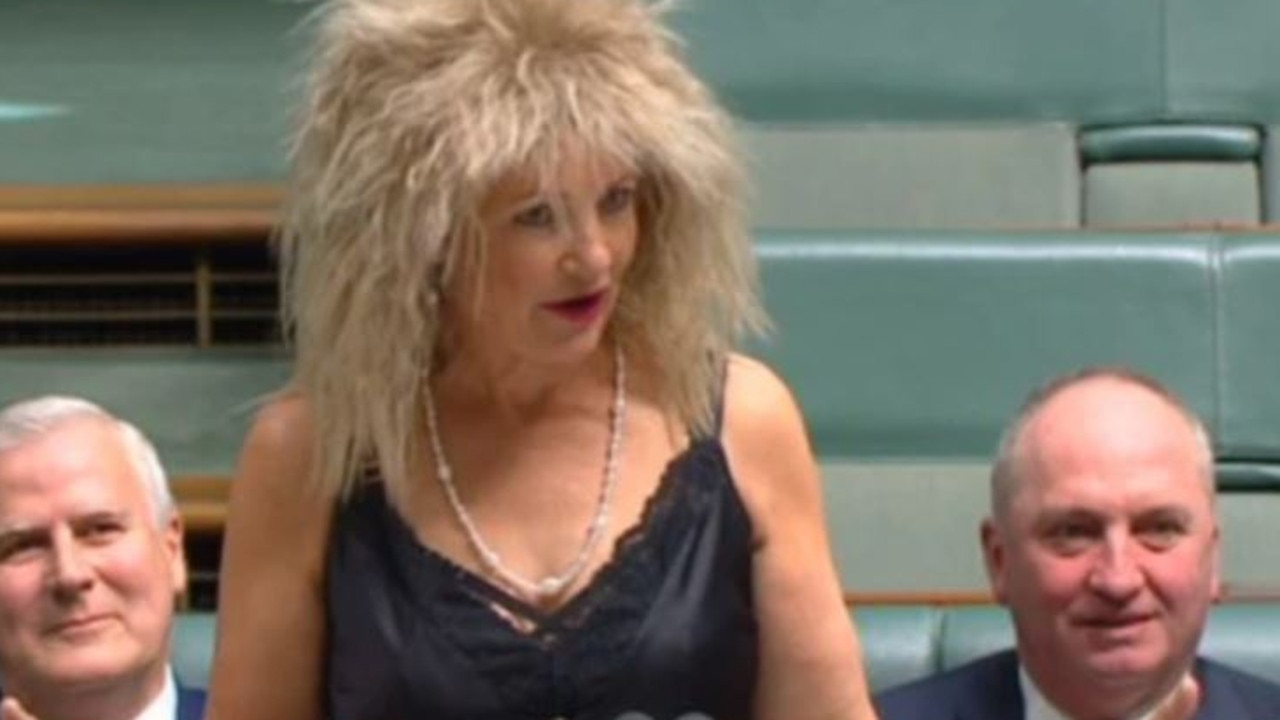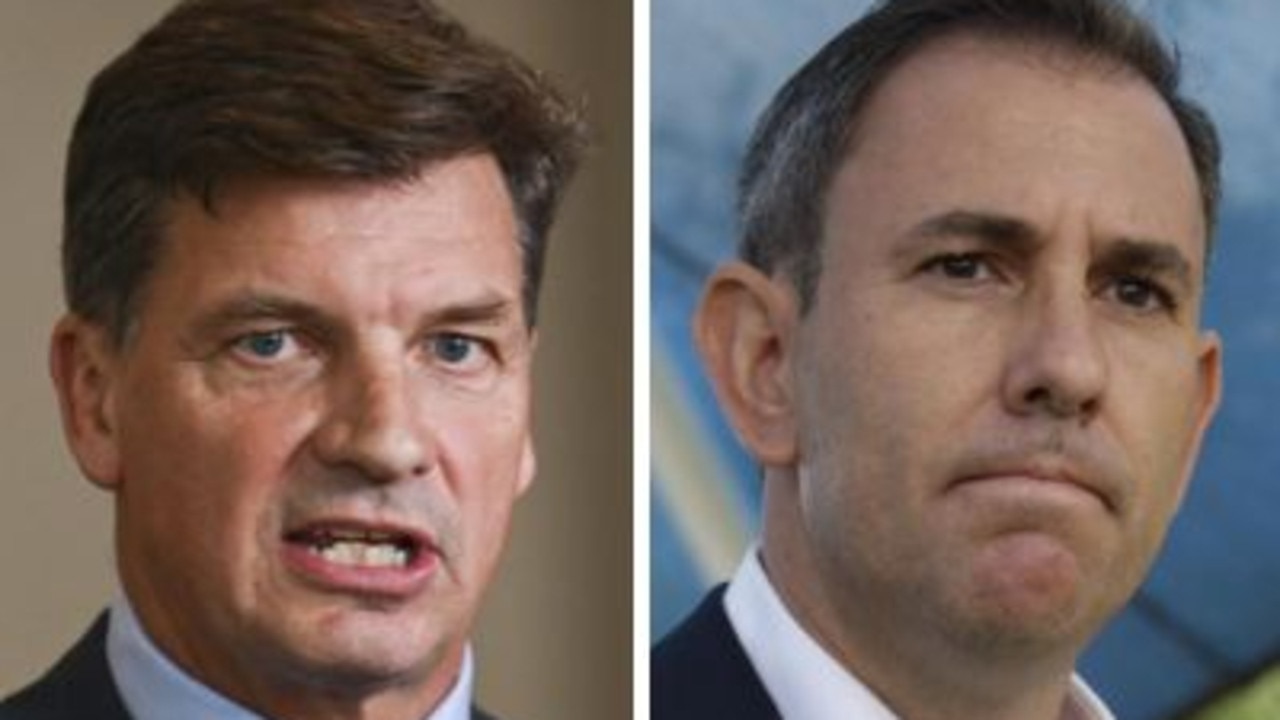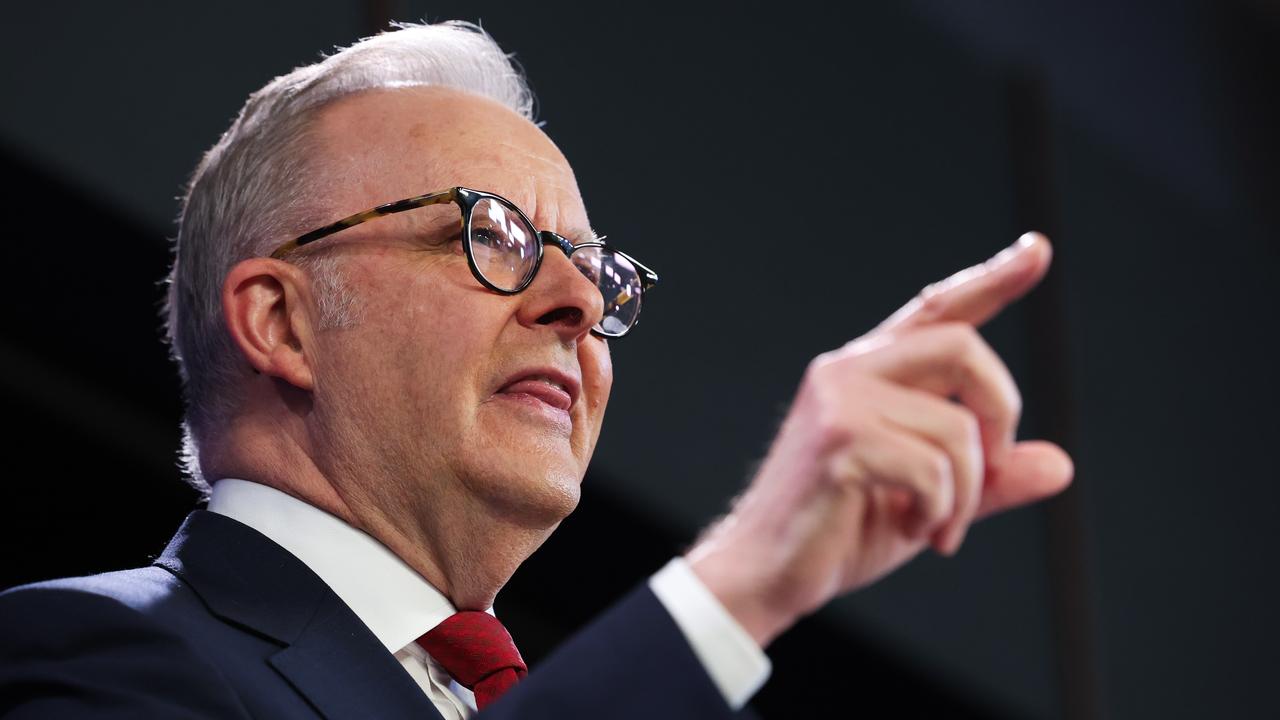Federal budget 2022: Scott Morrison and Josh Frydenberg defend cash splash as election looms
Anthony Albanese has accused the government of playing “short-term politics” with the budget during a grilling on morning TV.
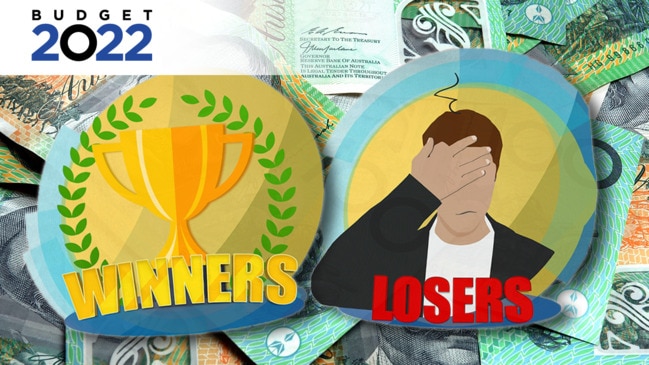
Treasurer Josh Frydenberg handed down the federal budget last night, announcing a suite of measures to help Australians deal with a sharp rise in the cost of living.
Those measures include a one-off, $250 cash handout for those “most in need”, a $420 tax offset for people earning less than $126,000 a year, and the fuel excise being cut in half for six months to reduce the cost of petrol.
If you’re wondering how the budget will affect you, check out our handy calculator.
With the details of this oh so crucial pre-election budget revealed, now it’s about the fallout. The Prime Minister was out and about doing the media rounds this morning to sell his plans to Australians.
Read on for a rundown of the morning.
Stream live analysis of what the federal budget means for you on Flash. 25+ news channels in 1 place. New to Flash? Try 1 month free. Offer ends 31 October, 2022 >
‘That’s rubbish’: PM hits back hard
One more interview with the Prime Minister to tell you about before we wrap up this little morning blog.
Speaking to Ben Fordham on 2GB radio, Mr Morrison was once again confronted with the words of furious Liberal Senator Concetta Fierravanti-Wells.
Fordham brought up one particularly striking line from her spray against Mr Morrison in the Senate last night. It concerned his campaign for a seat in federal parliament back in 2007, and the treatment of his rival candidate Michael Towke.
“I am advised that there are several statutory declarations to attest to racial comments made by Morrison at the time that we can’t have a Lebanese person in Cook,” she alleged.
“That’s rubbish,” Mr Morrison told Fordham.
“So she’s made that up?” the host asked.
“It’s not true,” said the Prime Minister.
“How did it feel hearing that last night?” Fordham asked.
“I was focused on the budget last night. I wasn’t focused on those issues,” said Mr Morrison.
“As Prime Minister, there are lots of people who disagree with you. There are lots of people who will say all sorts of things about you. It comes with the job. You’ve got to have a thick skin, and you’ve got to be able to focus on the things that matter most to Australians.
“Right now, that’s the cost of living pressures. That’s the budget we delivered last night. It’s the strong plan for the future.
“From time to time there’ll be disagreements, and you just move on and get the job done for Australians.”
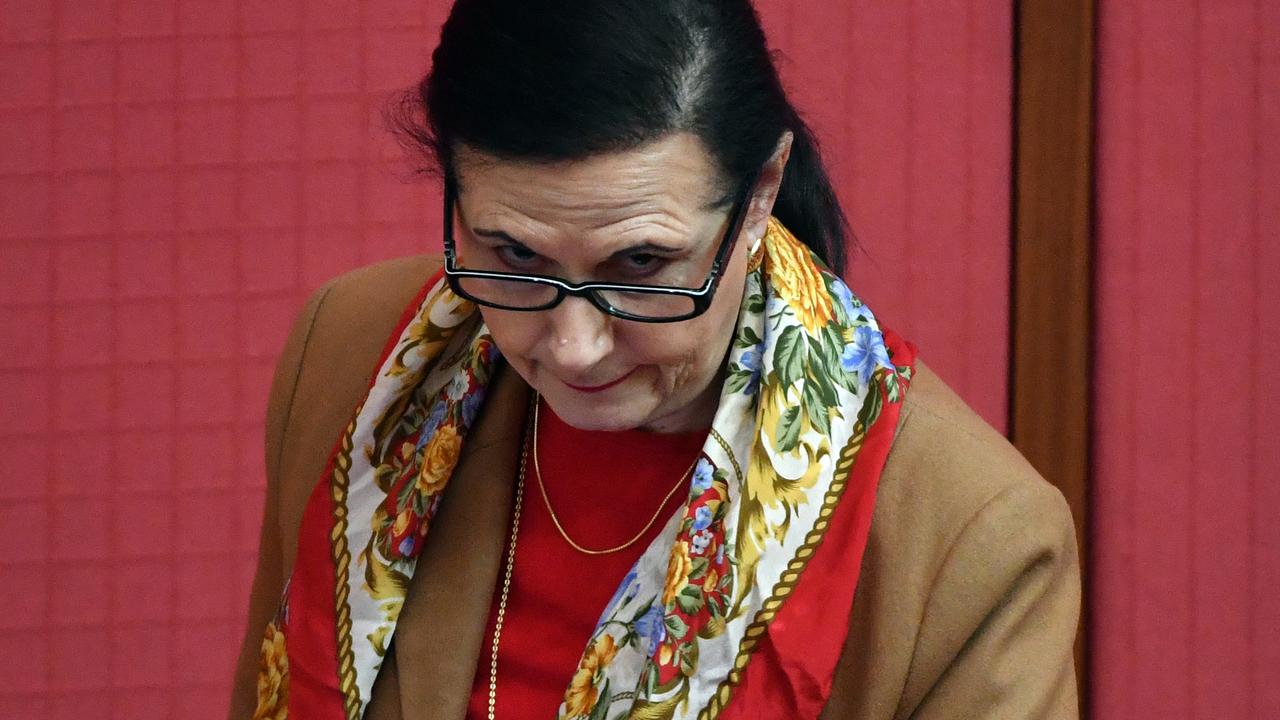
‘Like a fake tan’: Labor dismisses budget
On morning television earlier, Anthony Albanese said the government “may as well have stapled cash to how-to-vote cards”, because “it all disappears once the election is over”.
“That’s the problem with this budget. It’s a cynical ploy to get the government through an election, not a plan for a better future for Australians,” he said.
He insisted longer-term plans in the budget, on issues like infrastructure, were “off in the never-never” and would never be delivered.
David Koch put it to Mr Albanese that the economy was “in pretty good shape”, with unemployment at its lowest point in years.
“If people think this is as good as it gets - that’s essentially the government’s mantra here. We can do better,” Mr Albanese said.
“We can have a plan to grow wages. We can have a plan to take pressure off childcare costs. We have a plan when it comes to skills.
“For this government, it’s always about short-term politics, never about actually planning for the future.”
Expect to hear more of this rhetoric when the Labor leader delivers his reply to the budget in parliament on Thursday night.
In a separate interview, Mr Albanese tried out a slightly more colourful turn of phrase, saying the budget had “all the sincerity of a fake tan”.
“This is a plan for an election, not a plan for Australia’s future, and I think people will see it for what it is,” he told the ABC.
“These one-off measures are from a government that is desperate, and has been dismissing these issues.”
PM responds to furious senator
Scott Morrison copped another grilling on ABC News Breakfast. Host Michael Rowland started the interview by bringing up Liberal Senator Concetta Fierravanti-Wells’ “extraordinary spray” in the Senate last night.
Furious after being dumped by her party in a preselection round, Ms Fierravanti-Wells called Mr Morrison a “bully” who was “unfit” for the top job.
“Look, I understand that Connie is disappointed that 500 members of the Liberal Party came to select our candidates, and she was unsuccessful,” Mr Morrison said.
“There’s disappointment in politics. Both of my predecessors earned similar accusations, maybe not put exactly like that. But you know, people get disappointed.
“If there are serious issues Connie would like to raise about these things, we have processes in our party. They’re there, and I would strongly encourage her to take up any matters with the party organisation.”
Rowland eventually asked when the election campaign would start.
“The election will be held in the middle of May, when it’s due,” said the Prime Minister.
He has faced the same question a few times this morning, and has given the same answer.
Barnaby has some thoughts
The Deputy Prime Minister posted this rather philosophical tweet at 1am.
The “make a strong nation even stronger” part is straightforward enough. The rest of it, less so. I shall leave you to interpret it as you see fit.
I have a near religious conviction that we have to make a strong nation even stronger, as quickly as possible.
— Barnaby Joyce (@Barnaby_Joyce) March 29, 2022
What we see, this is not a movie, not a bad dream. This is the reality now.
This Budget is about saying where we make money we will make more, as much as we can. pic.twitter.com/jkTrz60qKw
Morning hosts grill PM on budget ‘bribes’
Prime Minister Scott Morrison has been doing the rounds on morning TV and radio. There’s a consistent theme to the questions he’s faced: are the cost of living measures in the budget just, in essence, election bribes?
On Sunrise, host David Koch asked the Prime Minister about criticism that the headline policies in the budget were “very short-term, just to get votes for a May election”.
“People need to read more than the first page. Because there’s $21 billion of investment in our regions. Transformational investments in dams, and roads, and other infrastructure,” said Mr Morrison.
“We understand that Australia is bigger than our capital territories.”
"The cost of living pressures are real, the fuel prices increases are real and the support that we are delivering is real"
— Sunrise (@sunriseon7) March 29, 2022
Prime Minister @ScottMorrisonMP on the cash handouts, petrol price cuts and investments announced in the federal budget. pic.twitter.com/BoNBAUoS3e
A few minutes later, over on Sky News, host Kieran confronted Mr Morrison with the comment of an ordinary voter last night, who told the network the budget measures looked “like a bribe”.
“Cost of living pressures are real, and Australians need that support now,” said Mr Morrison.
“To those who are criticising these payments: do they not think the cost of living pressures are real? We do. All the Australians sitting around their kitchen tables understand it.”
And on Today, host Allison Langdon asked whether the government was addressing “the cost of living or the cost of winning”.
“No, it’s the cost of living. There’s a need,” Mr Morrison said.
Albanese backs fuel excise cut
Samantha Maiden
Labor leader Anthony Albanese has backed the 22 cent cut to the petrol excise, guaranteeing the savings are locked and loaded.
“Look, we’re not like the Prime Minister, who has just discovered apparently that cost of living pressures are real,” Mr Albanese said.
“So these pressures are absolutely real, but people will have a look at this government and say they’ve been in office for almost a decade.
“And now, a few days before they call the election, they’ve now discovered that cost of living pressures are out there.”
Asked whether he backed the cut, he said: “Of course we will pass the fuel excise cut, because we know, and we’ve been saying for a long period of time, that there’s pressure on family budgets.”
‘Hidden costs’ we’ll all end up paying
Sunrise spoke to economist Chris Richardson this morning, asking him who the winners and losers of the budget were.
Mr Richardson explained that while the historically low unemployment rate was wonderful, the government’s policies would cause “hidden costs” for most Australians.
“They’re not obvious losers,” he replied, quipping that “if you have a pulse and a vote you got some money”.
“The problem is, there are some hidden costs. When you drop extra money atop an economy that’s pretty strong – and remember, unemployment rates are about to be at a 50-year low – you get higher inflation, which means our money doesn’t go as far. You might annoy the Reserve Bank into an interest rate rise, so the cost of your mortgage goes up, and we just import more, we speed up other economies rather than ours.
“So in that sense, we all lose little bits, they’re just hidden.”
Asked whether the budget would put pressure on the RBA to jack up interest rates faster, Mr Richardson was blunt: “Yes it will.”
In his view, however, the rate rise won’t happen until late 2022. So it might still be a fair few months away.
"When you put extra money atop an economy that is pretty strong, you get higher inflation"
— Sunrise (@sunriseon7) March 29, 2022
Economist Chris Richardson says "there are some hidden costs" in the Morrison government's federal budget. pic.twitter.com/IhisxAhp2J
When you’ll actually get your goodies
It’s all well and good to announce cash handouts and tax breaks, but when will Australians actually receive them?
First up we have the one-off cost of living payment of $250, which is targeted at those “most in need”. That means pensioners, carers, veterans, job seekers, eligible self-funded retirees and concession card holders.
The tax-exempt payment will be made automatically to eligible recipients in April. When in April? That’s unclear. But you could conceivably have your hands on it within days.
The next piece of relief should be lower petrol prices, caused by the fuel excise being cut in half from 44.2 cents per litre to 22.1 cents.
The cut took effect at midnight, but do not expect to see an immediate fall in prices at the bowser. That’s because the excise is levied at the wholesale point, meaning there are millions of litres still in the system that were purchased at the higher excise rate. Petrol stations still have to sell that fuel.
Mark McKenzie, chief executive of the petrol station peak body ACAPMA, told news.com.au it could take between three and seven days for motorists to see lower prices. Expect a longer wait if you live in a regional area.
The Treasurer, clearly trying to manage expectations, said the cut would flow through within the next two weeks.
The other thing to watch for is the $420 tax offset for the 10 million or so Australians earning less than $126,000 a year. You’ll feel that in early July, i.e. at the end of the financial year.
Key election clue buried in budget
The federal election is due in less than two months, with the chatter being that Scott Morrison will call it next week and schedule polling day for May 14.
With that in mind, let us delve into the budget papers and examine the relatively obscure category of spending known as “decisions taken but not yet announced”.
Policies the government has yet to reveal to the public fall into that category. The amount of money allocated to it gives us a rough idea of just how large the Prime Minister’s election war chest will be.
So, here are the figures. According to the budget papers, “decisions taken but not yet announced” will cause an increase in spending of $985.3 million in the 2021/22 financial year, and an even larger increase of more than $1.4 billion in 2022/23.
That gives the government a potential war chest of $2.426 billion. Not a bad amount of cash to throw around in search of votes.
Interestingly, the spending spree is reversed in the final three years of the forward estimates period, with unannounced policies causing a fall in spending of $916.6 million in 2023/24, $1.168 billion in 2024/25 and $892 million in 2025/26.
In total then, from this year onwards, Treasury estimates the policies in question will actually reduce government spending by $550 million.
Meanwhile, unannounced decisions are expected to cause a steady increase in revenue for the government, adding about $2.4 billion to its coffers between now and 2026.



